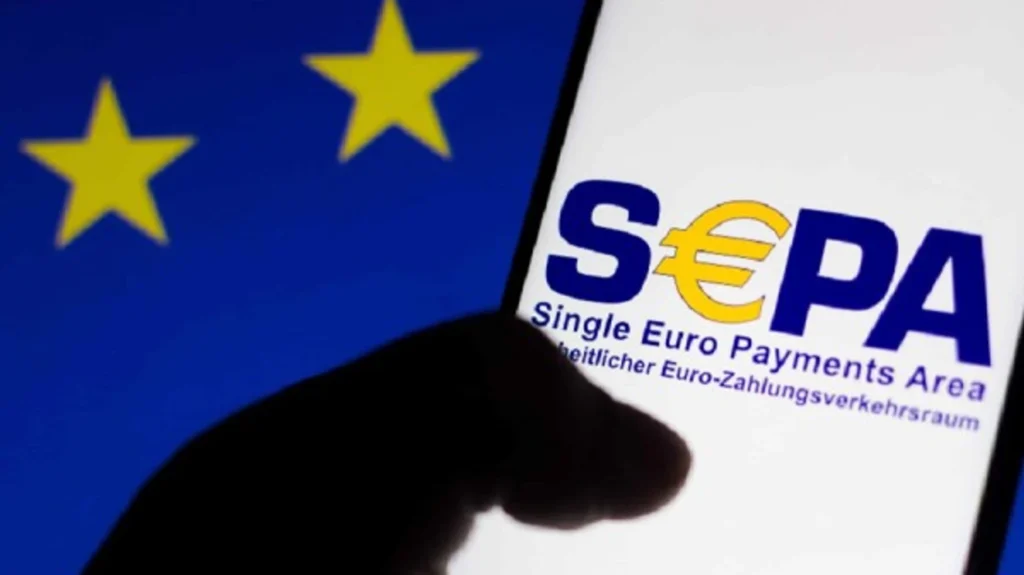Tirana, October 7, 2025 – Albania has officially launched euro-denominated payments through the Single Euro Payments Area (SEPA), marking a historic step in the country’s integration into the European financial system and strengthening its path toward eventual membership in the European Union.
The announcement was made today by Gent Sejko, Governor of the Bank of Albania, during the annual Conference of Ambassadors, where he underlined the strategic importance of the move for both citizens and businesses.
“From today, Albania is fully integrated into the EU in terms of financial payments,” Governor Sejko declared. “This reform represents a new era for our economy, for our businesses, and for every Albanian citizen who interacts financially with the European market.”
A Long-Awaited Achievement
Albania’s accession to SEPA follows years of regulatory alignment and institutional reforms. The Bank of Albania, in cooperation with the Ministry of Finance and other national authorities, implemented a wide-ranging set of legal and technical measures to ensure compatibility with SEPA standards.
The European Payments Commission approved the inclusion of all Albanian banks in late 2024, clearing the way for their official entry into the system. Alongside Montenegro, Albania became one of the newest countries to join SEPA’s network, which now extends to 41 states, including all EU member countries, the United Kingdom, Switzerland, and several Nordic nations.
Why SEPA Matters
The SEPA framework, first introduced in 2008, harmonizes the way euro payments are made across participating countries. Instead of costly and time-consuming cross-border transfers, SEPA ensures that sending money from Albania to Germany or Italy is just as easy as making a local transfer within Tirana.
Key benefits include:
- Faster transactions: Euro transfers are processed more quickly, reducing waiting times for businesses and individuals.
- Lower costs: Bank fees for international payments are expected to drop significantly, providing direct savings to households and companies.
- Unified standards: Payment instructions and account details follow common European formats, simplifying cross-border commerce.
- Greater transparency: The system enhances oversight and reduces opportunities for financial crime.
Boost for Business and Investment
Governor Sejko highlighted that SEPA membership is not only a technical milestone but also a powerful economic tool. For Albania’s private sector, where trade and remittances with EU countries dominate, the impact could be transformative.
“Lower costs and greater efficiency in euro transactions mean our companies can compete more effectively in European markets,” Sejko explained. “At the same time, foreign investors will find an environment of increased trust, predictability, and transparency in Albania’s financial sector.”
Remittances, which play a crucial role in the Albanian economy, are also expected to benefit. With nearly half a million Albanians living and working in EU countries such as Italy, Greece, and Germany, the ability to send money home faster and at lower cost is likely to provide a significant boost to household incomes.
A Strategic Step Toward the EU
The Albanian government has repeatedly emphasized that strengthening financial infrastructure and aligning with European standards is essential for advancing the country’s EU accession process.
By implementing the Law on Payment Services and adopting strict regulations against money laundering and terrorism financing, Albania has demonstrated its readiness to participate in the common European financial space.
European observers have also welcomed the move. Analysts argue that Albania’s participation in SEPA not only strengthens its financial stability but also reinforces broader efforts for regional integration in the Western Balkans.
Looking Ahead
While today’s milestone is a reason for celebration, Governor Sejko acknowledged that continued reforms will be necessary to fully harness SEPA’s benefits. Expanding digital payment solutions, strengthening cybersecurity, and further educating the public on financial literacy are among the Bank of Albania’s next priorities.
Still, the message from today’s event was clear: Albania has taken a decisive step forward.
“By joining SEPA, we are not only connecting our banks and our businesses to Europe,” Sejko concluded. “We are sending a strong signal that Albania’s future lies firmly within the European family—economically, financially, and politically.”

